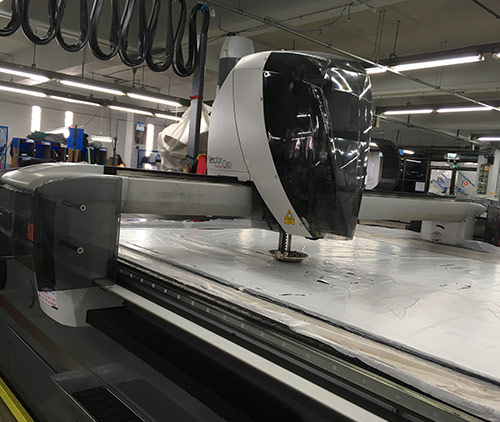Olive Palm Trading
Olive Palm Trading
Sportswear and outerwear designer and manufacturer Olive Palm takes pride in something bigger than its award-winning quality and craftsmanship. It is one of the largest OEM/ODM factories worldwide with the Fair Trade certification – advocating better wages and working conditions, local sustainability, environmental protection and overall fair trade.
A leader in Thailand’s innovative textile manufacturing processes since it began in 1981, it has successfully implemented company-wide enterprise resource planning (ERP) and Product Life Cycle Management (PLM) solutions, and adopted Industry 4.0-driven digitalisation, and manufacturing execution system (MES) – allowing machine connectivity and real-time productivity monitoring. Such conscientiousness was recognised by Thailand Lean Award 2017, which conferred Olive Palm the prestigious Golden Award as a testament to its commitment to innovation and efficiency through lean management – besting not only competitors in the garment segment, but other industry leaders as well.
Olive Palm is trusted by renowned names including Patagonia, Jack Wolfskin, Montbell, O’Neill and other big and small brands in the United States and Europe. Around 20% of Olive Palm’s electricity usage come from solar energy. Olive Palm’s ISO 9001 and EN ISO 13485 certified facilities in Thailand and Myanmar produce functional and non-functional garments such as ski jackets and pants, boardshorts, polyester padded jackets, woven jackets and pants, knitted jackets and medical-grade isolation gowns with inhouse decoration including screen print, pad point, seam seal, laser cutting, welding, ultrasonic cutting, embossing and embroidery.




 Automatic Cutter
Automatic Cutter
 Automatic Spreader
Automatic Spreader
 Pattern Making Facilities
Pattern Making Facilities
 Switch Track
Switch Track
 Decoration
Decoration


